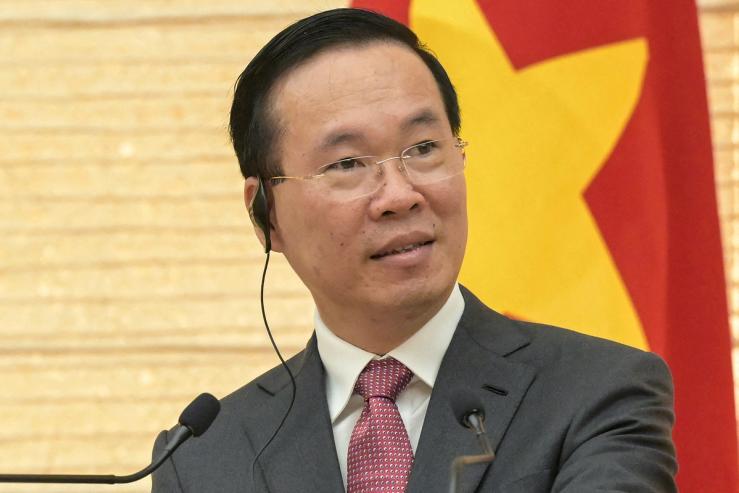The News
Vietnamese President Võ Văn Thưởng resigned Wednesday after holding the post for less than a year.
The announcement follows a government anti-corruption campaign that has ensnared high-ranking members of the Communist-led government. Thưởng, who was the second-most powerful politician in the country, is Vietnam’s second president in two years to step down.
SIGNALS
Swift departure of president unlike typical Vietnamese posture
The rumor mill about a possible political shakeup in Vietnam “went into hyperdrive” last week after a state visit from the Dutch king and queen was postponed “due to internal circumstances,” the Vietnam Weekly newsletter wrote. “Vietnam is usually good about preventing domestic infighting from interfering with foreign affairs, so this was a shock.” The country typically plays down political rumors and casts an air of stability to “keep its house tidy in front of foreign partners’ eyes,” a fellow focused on Vietnamese politics at the ISEAS – Yusof Ishak Institute said.
Anti-corruption campaign could hurt Communist Party
The government’s corruption fight was initially welcomed by the public, but the intensifying nature of the probe — some 200,000 officials have been sacked or jailed — poses a significant threat to the perceived legitimacy of the Communist Party of Vietnam, a U.S.-based political science professor studying Southeast Asia wrote in The Diplomat. It “may inadvertently expose to the public the divisions among the country’s political elite” and force them to pay closer attention to the government. Thưởng’s resignation is sure to raise more questions about the turmoil, especially from the private sector: “Investors have been becoming nervous as the corruption crackdown drags on and expands to private businesses,” the Financial Times wrote.
Most critical decade for Vietnam’s development
The shakeup comes at a critical time for the country of nearly 100 million. Questions have swirled around the health of the 79-year-old Communist Party leader, Nguyễn Phú Trọng, who may step down after his current term ends in 2026. His successor “will govern during the most consequential decade of Vietnam’s development,” Radio Free Asia wrote. The trajectories of the U.S. and China will be especially crucial, as Vietnam depends on the superpowers for trade, while simultaneously benefitting from investment by other countries looking for a less risky alternative to China. If the U.S. leans toward isolationism under a second Donald Trump term “and China becomes more chaotic, diplomacy will have to be performed on a knife’s edge.”



